Love at Goon Park (23 page)
Authors: Deborah Blum

Clara and Harry Harlow, and their sons, Robert, age 5, and Richard, age 2, in 1944, two years before the couple divorced and Clara and the boys left Madison.
Photo courtesy of Robert Israel
Photo courtesy of Robert Israel
Harry and son Robert, age 6, during one of their weekend visits to the primate laboratory, in a sideyard along the railroad tracks.
Photo courtesy of the Harlow Primate Laboratory, University of Wisconsin-Madison
Photo courtesy of the Harlow Primate Laboratory, University of Wisconsin-Madison
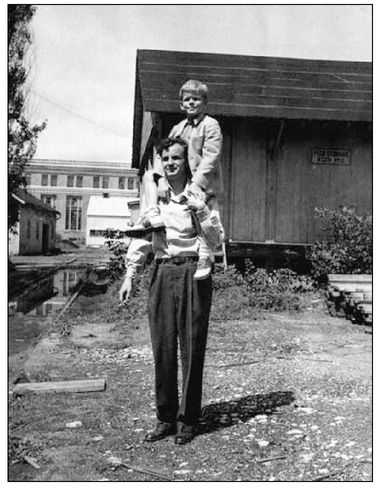
The former Wisconsin psychology department buildingânow demolishedâwhich was given the nickname Goon Park because of its street address.
Photo courtesy of the University of Wisconsin Archives
Photo courtesy of the University of Wisconsin Archives
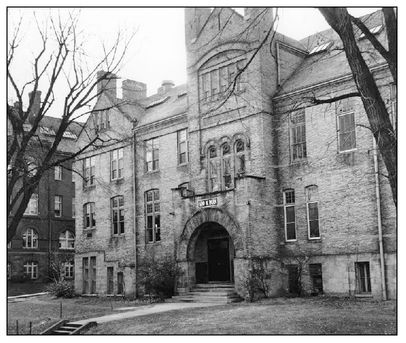
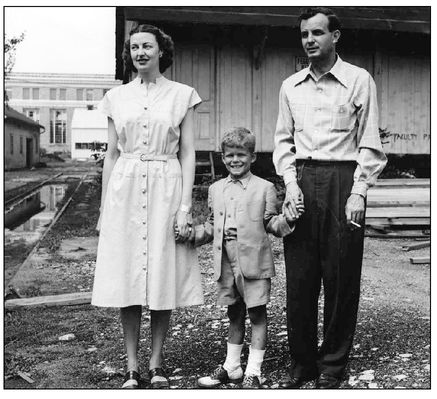
Peggy and Harry Harlow, shortly after their 1948 marriage, visiting with Harry's first son, Robert.
Photo courtesy of the Harlow Primate Laboratory, University of Wisconsin-Madison
Photo courtesy of the Harlow Primate Laboratory, University of Wisconsin-Madison
Harry Harlow's first primate laboratory, which he converted out of an abandoned box factory building.
Photo courtesy of the Harlow Primate Laboratory, University of Wisconsin-Madison
Photo courtesy of the Harlow Primate Laboratory, University of Wisconsin-Madison
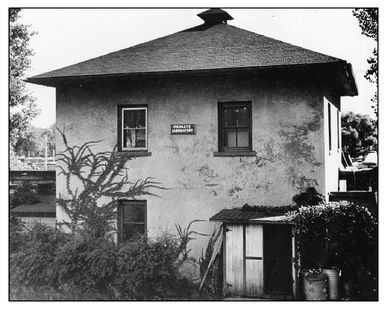
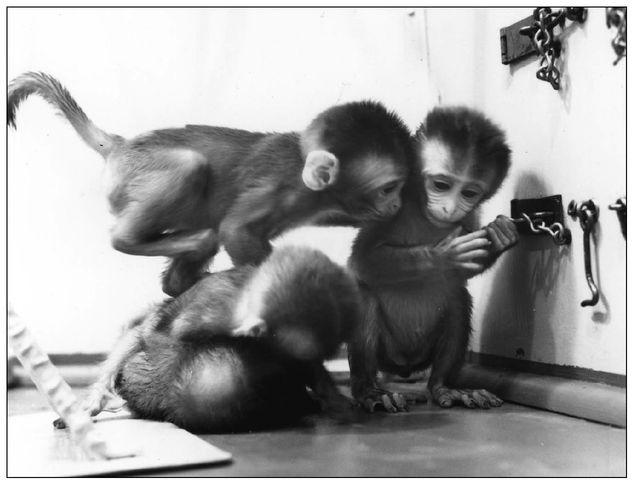
Three young rhesus macaques puzzle their way toward opening a lock during a curiosity experiment at the Harlow laboratory.
Photo courtesy of the Harlow Primate Laboratory, University of Wisconsin-Madison
Photo courtesy of the Harlow Primate Laboratory, University of Wisconsin-Madison
Robert Zimmermann, a Harlow graduate student who worked closely with the mother-love studies, takes a moment to relax at the laboratory.
Photo courtesy of Robert Zimmermann
Photo courtesy of Robert Zimmermann
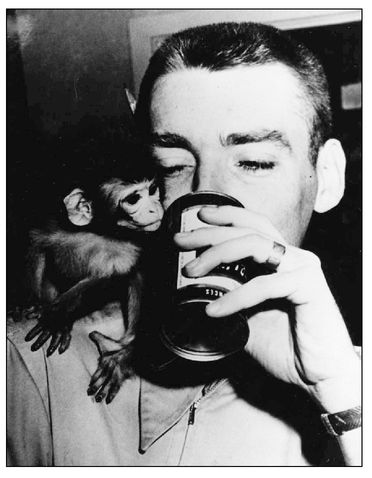
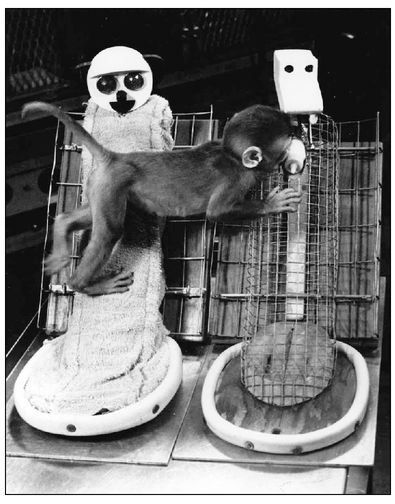
A baby monkey keeps a possessive grip on his beloved cloth mother while reaching over to wire mother to be fed.
Photo courtesy of the Harlow Primate Laboratory, University of Wisconsin-Madison
Photo courtesy of the Harlow Primate Laboratory, University of Wisconsin-Madison
A young rhesus monkey scoots back to his mother as a scientist approaches.
Photo courtesy of the Harlow Primate Laboratory, University of Wisconsin-Madison
Photo courtesy of the Harlow Primate Laboratory, University of Wisconsin-Madison
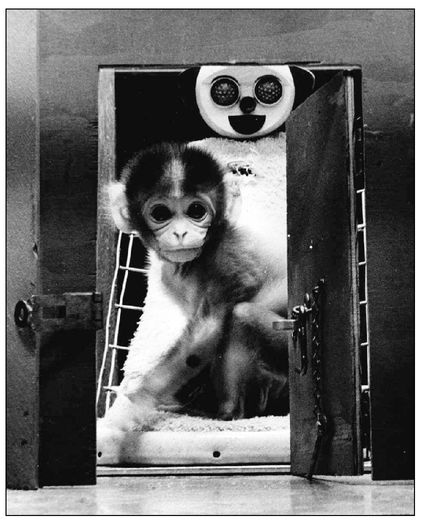
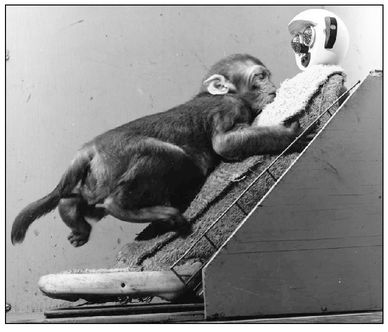
A baby monkey, startled during an experiment, leaps for his cloth mother, who represents security and comfort.
Photo courtesy of the Harlow Primate Laboratory, University of Wisconsin-Madison
Photo courtesy of the Harlow Primate Laboratory, University of Wisconsin-Madison
The cloth and wire mothers, side by side, from the original Harlow tests of the importance of contact comfort.
Photo courtesy of the Harlow Primate Laboratory, University of Wisconsin-Madison
Photo courtesy of the Harlow Primate Laboratory, University of Wisconsin-Madison
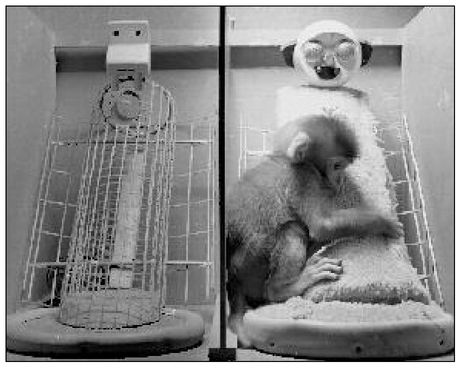
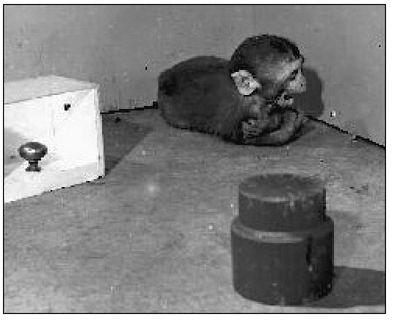
A baby rhesus macaque, in a new and strange room, with no mother nearby, gives way to fear and loneliness.
Photo courtesy of the Harlow Primate Laboratory, University of Wisconsin-Madison
Photo courtesy of the Harlow Primate Laboratory, University of Wisconsin-Madison
A wind-up toy drummer bear was one of the devices used to test the fear in young monkeys and whether a mother provided a sense of security.
Photo courtesy of the Harlow Primate Laboratory, University of Wisconsin-Madison
Photo courtesy of the Harlow Primate Laboratory, University of Wisconsin-Madison
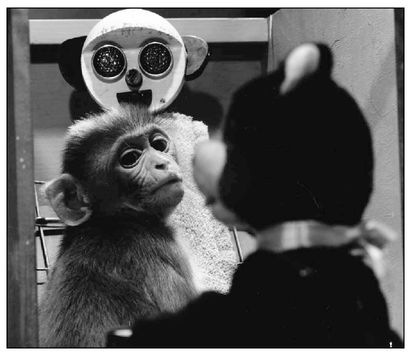
Other books
The Color of Your Skin Ain’t the Color of Your Heart by Michael Phillips
Grishma (Necoh Saga) by Blount, Kelly
Resurgence (Heart of Stone #9) by D H Sidebottom
Aftershock: A Charity McAdams Novella by Elizabeth Storme
The Tournament at Gorlan by John A. Flanagan
Callahan's Place 10 - Off The Wall At Callahan's (v5.0) by Spider Robinson
Collected Works of Poe, Vol 1 by Edgar Allan Poe
Catch by Michelle D. Argyle
Bloodied Ivy by Robert Goldsborough
Party Girl by Stone, Aaryn